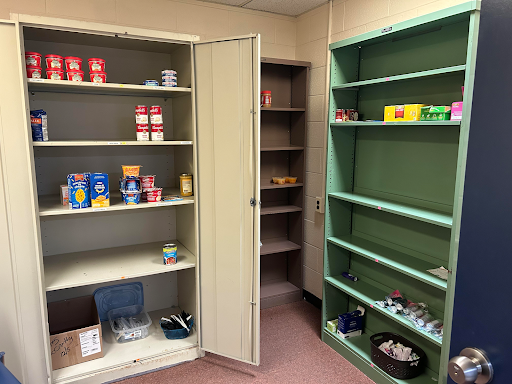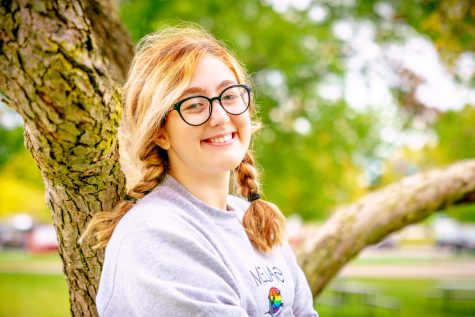Central New York has seen a recent upsurge of positive coronavirus cases. This increase has also been found on campus. On Nov. 10, the residential block of North Hall was placed under “soft quarantine” after the outbreak of five students who live in that area.
Starting on Nov. 11, Utica College attendees have received several emails indicating positive cases. There are currently 19 student positives and four employee positives, according to the college’s COVID-19 Dashboard online.
“I can’t say what has caused the recent upsurge for sure, but I think COVID fatigue is more likely than not a major part of it,” Freshman Jasmine Sonia said. “It’s a very hard and very stressful time, especially for social people.”
Others believe that parties occurred over Halloween weekend, directly linking the spike in positive cases at the moment, though the legitimacy of this claim is still in the air.
“I understand frustration and the need to get out, but I don’t think you should go party,” Senior Seth Shaw said. “I also think that there is still uncertainty with COVID because there is no pamphlet, it seems to be a case-by-case scenario and not all positive cases look the same.”
In response to the increase of positive cases on campus, President Laura Casamento declared that all on-campus gatherings are limited outside of classes to only four people; masks must be worn at all times; there is limited capacity in recreation spaces such as the Fitness Center; and the Dining Hall will no longer accommodate seating. Similarly, Gov. Andrew Cuomo pushed a curfew and in-person limit for restaurants, bars, and gyms on Nov. 13.
The last day of on-ground classes is Nov. 25, with the one more full week of classes online to close out the semester and then finals week to follow.
“Honestly, I feel like with the small ‘outbreak’ in North Hall, we might not even have a chance to come back for the spring semester and it would all be remote,” said Junior Olivia Buchanan.
She is an English major who commutes to campus three days of the week.
“I am worried about my online final,” she said. “I definitely feel more comfortable in a classroom.”
The college looks to have reached its goal with hitting the Thanksgiving deadline, despite the recent surge of positive cases. With Thanksgiving Break approaching and the end of the fall semester in sight, residential students are choosing to move out. Recently, there has been an increase of students turning remote prior to the official transfer after break.
“I have been lucky to avoid a complete quarantine,” Freshman and North Hall resident Abigail Whitt said. “I actually left campus Nov. 13 and flew home Nov. 15. I am from Southern Oregon, and with cases rising on campus and across the country, I was scared I wouldn’t be able to go home for break if I didn’t leave as soon as possible.”
Despite the fact that several residential and commuter students alike have already transferred online, guidelines for moving out have already been established to promote a safe and smooth exit from campus.
“Move out is working very similarly to how move out works at the end of normal fall semesters,” said Marissa Finch, interim director of Student Living. “One individual is allowed to enter the residence halls with their student to assist them with moving out.”
Along with the cap of one guest assisting with moving out, the guest must be masked. There will be no testing requirement because each student during the semester has been required to partake in pooled testing weekly. As of Nov. 16, there has not been push for students to remove all their belongings from the residence halls.
The excitement of returning home may be hindered by a fear of travel. In response to this, the Student Health Center suggests that students proceed to be cautious.
“The main thing for precaution or prevention while heading home are exactly the same as we have on campus,” said Terri Sherman, director of UC’s Health Center a nurse practitioner. “Wear your mask, social distance and keep track of hand hygiene. If you are traveling, plan ahead: make sure you use the bathroom before you go, pack snacks in the car and have a full gas tank. You won’t have to stop at rest stops and when you’re at your destination, stay there.”
Safety measures are not limited to just the public. Sherman also suggests that students returning home to households that contain several individuals, especially international, should practice mask-wearing and social distancing the first few weeks at home.
The rise of positive cases extends beyond the college, however. The virus has seen a rise in cases where students call home, too.
On Nov. 17, WKTV reported over 560,000 positive cases in New York State and deaths over the threshold of 34,000. Locally, Oneida County has had more than 3,000 cases. Other nearby counties, such as Otsego and Herkimer counties, are over 200.
Despite this, the college is now looking to plan for next semester, while global news came of a potential vaccine. This week, CNN reported the Moderna COVID-19 vaccine has reached a threshold of 90% effectiveness.
“I encourage anyone to get vaccinated,” Shaw said. “I am hoping that vaccines will be given to those who need it first – the young, old, people in poor areas, and the immunocompromised.”


















![President Todd Pfannestiel poses with Jeremy Thurston chairperson Board of Trustees [left] and former chairperson Robert Brvenik [right] after accepting the university's institutional charter.](https://uticatangerine.com/wp-content/uploads/2023/10/unnamed.jpeg)






















































































































